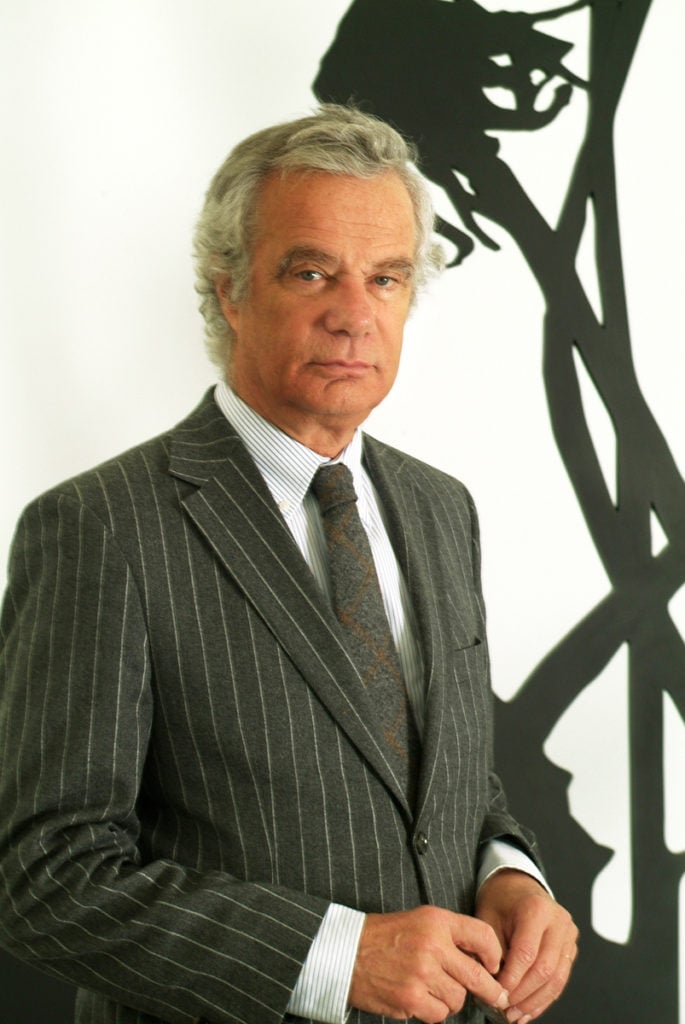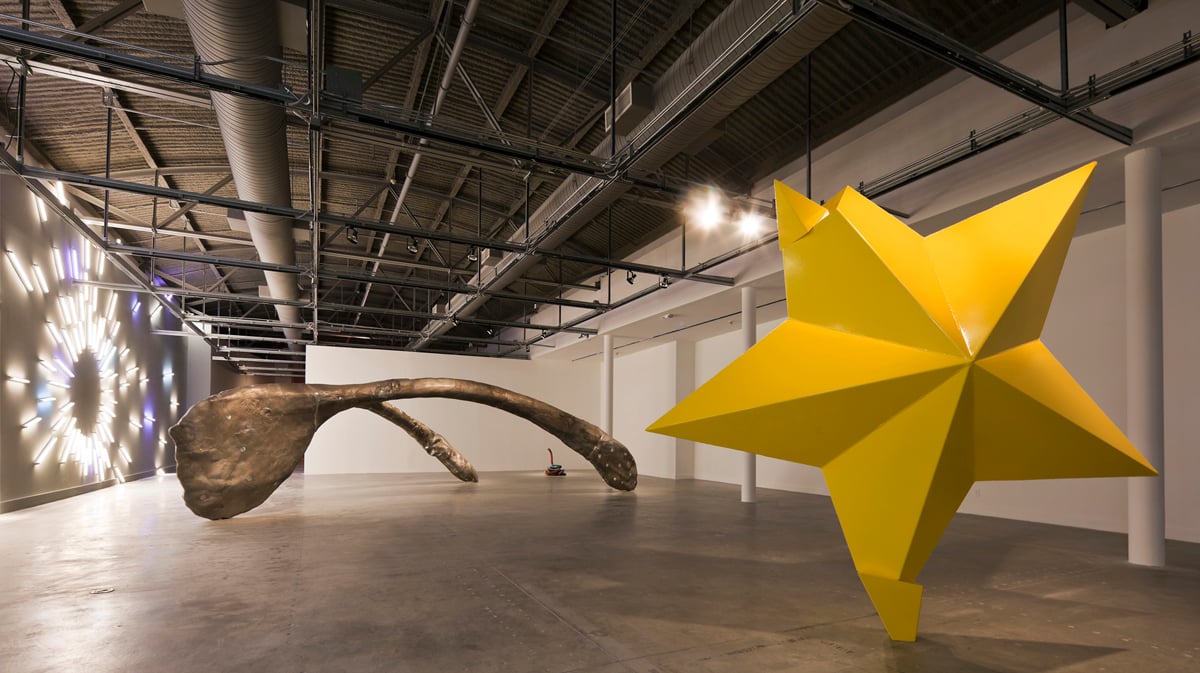Art & Exhibitions
Jean-Gabriel Mitterrand Steps Out of the Shadows
The veteran Paris dealer reveals all his plans.

The veteran Paris dealer reveals all his plans.

Coline Milliard


Jean-Gabriel Mitterrand
Photo: Courtesy Galerie Mitterrand.
In Paris, he’s known simply as “JGM.” The veteran sculpture dealer Jean-Gabriel Mitterrand has long preferred to keep a low profile, concentrating on his work with Mid-century heavyweights such as Niki de Saint Phalle and Les Lalannes—and avoiding attracting too much attention to his shiny connections. “When I opened the gallery in 1988, I could not call it Mitterrand,” he tells artnet News. “It was impossible—my uncle was the president.” So he gave it his initials: JGM.Galerie.
Now, after 26 years in the business, the dealer feels the name has finally become “legitimate.” To mark the opening of a brand new 200-square-meter space in Paris’ Marais on June 12, JGM.Galerie will finally become Galerie Mitterrand. And another, equally significant project is also in the pipeline: In 2015 the gallerist will launch a vast outdoor sculpture park on the Côte d’Azur.
Art chez Mitterrand runs in the family—even without mentioning Jean-Gabriel’s brother, Frédéric, culture minister under President Sarkozy’s government. The gallerist’s son, Edward, is an art adviser at the helm of the Geneva-based consultancy Mitterrand+Cramer. He will be coming in as an adviser and associate of the new Paris gallery. The space is to be inaugurated by Mark Handforth with a solo show curated in collaboration with Gavin Brown’s Enterprise, where Edward’s sister, Laura, is associate director (she’s also director at the Independent art fair).
The Handforth exhibition sets the tone. The new venture will focus primarily on contemporary art, concretizing the gallerist’s increasing commitment to younger generations of artist. “For the last two years, [the new gallery] had become a necessity,” he says. “I was looking for something all over Paris and a space freed up in our building.”

Mark Handforth
Exhibition View of Rolling Stop (2011) at the Museum of Contemporary Art North Miami
Courtesy of Museum of Contemporary Art North Miami
JGM’s move is indicative of a progressive shift in the Paris gallery world, which has become more ambitious of late. Spurred by the success of FIAC, dealers have had to up their game. Blue chip galleries—Gagosian in Le Bourget or Thaddaeus Ropac in Pantin—have opened gigantic outposts on the outskirts of the capital, something that would have been unthinkable less than a decade ago.
The suburbs didn’t tempt Mitterrand, who says that leaving Paris’ centre requires the kind of investment difficult to shoulder for a medium-size gallery such as his. But this doesn’t mean that the display of very large artworks suburban spaces allow isn’t part of his plan. Quite the opposite: He will show monumental sculptures in the picturesque setting of 10 hectares of seaside land, which he has called Le Domaine du Muy. Located a half hour’s drive from the celebrity hangout of St. Tropez, it’s likely to attract a glittery clientele.
“I thought that it would be interesting as a concept to put sculpture in a natural space and near a place visited by many collectors,” Mitterrand says.
Works by Lalannes, de Saint Phalle, and Yayoi Kusama are already set to feature in exhibitions that will last up to six months. Edward Mitterrand will also be involved in this outdoor venture, commissioning new pieces and organizing projects in collaboration with the Swiss curator Simon Lamunière. Le Domaine du Muy will operate in close connection with the new Paris gallery, which is set to function like a laboratory space for the Côte d’Azur enterprise.
When it officially opens in the summer of 2015, the Domaine du Muy will join several private contemporary art initiatives in the area, including the Villa Navarra (the gallery-cum-private residence of Paris dealer Enrico Navarra), the foundation of sculptor Bernar Venet, and Château Lacoste, a biodynamic vineyard and sculpture park owned by Irish property developer Paddy McKillen. “There can be a certain synergy,” Mitterrand concludes.